Your cart is currently empty!
Tag: Systems
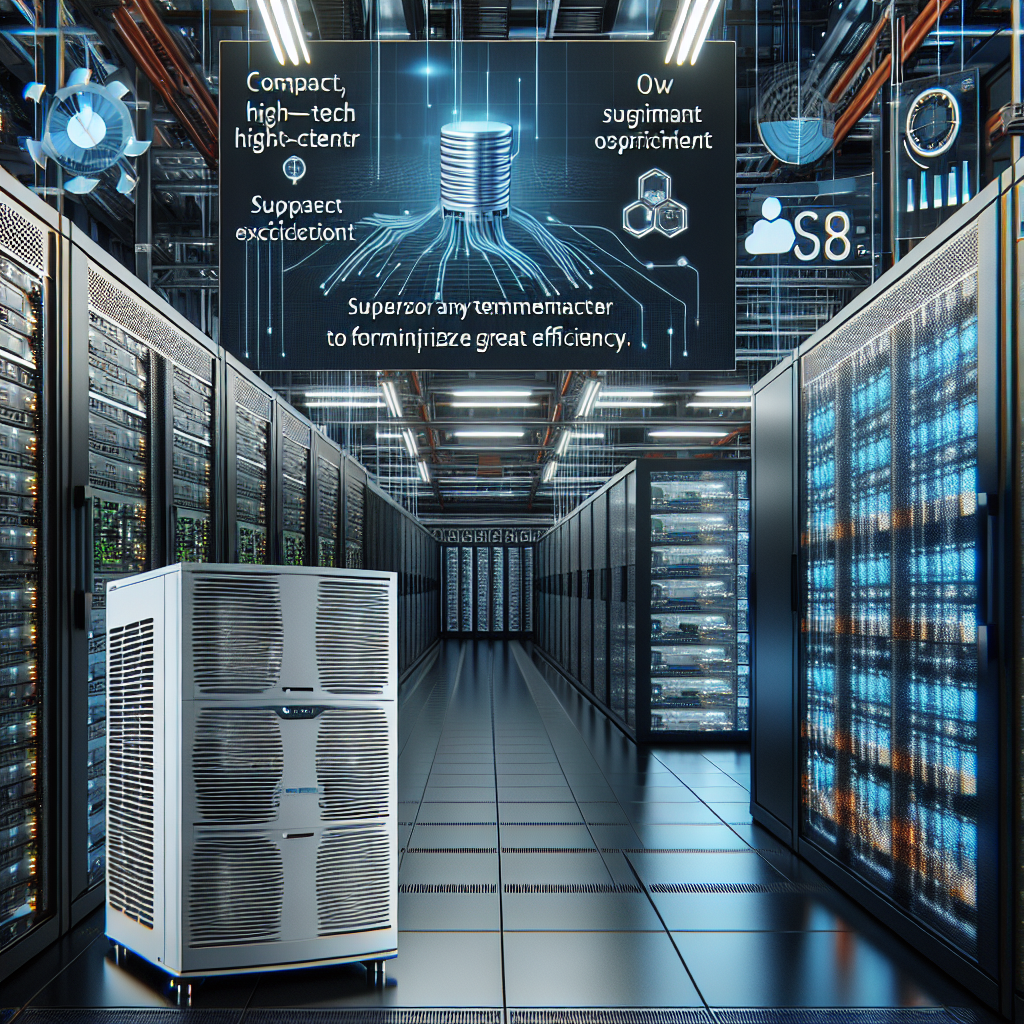
Maximizing Efficiency: How to Optimize Data Center HVAC Systems
In today’s digital age, data centers play a crucial role in storing and processing the vast amounts of data generated by businesses, organizations, and individuals. However, data centers are also notorious for their high energy consumption, with cooling systems accounting for a significant portion of this energy usage. Maximizing efficiency in data center HVAC (heating, ventilation, and air conditioning) systems is essential for reducing energy costs, minimizing environmental impact, and ensuring the smooth operation of these critical facilities.There are several strategies that data center operators can employ to optimize their HVAC systems and maximize efficiency. These include:
1. Implementing Hot Aisle/Cold Aisle Containment: Hot aisle/cold aisle containment is a design strategy that involves arranging server racks in alternating rows with cold air intakes facing one aisle and hot air exhausts facing the other. By creating separate airflow paths for cold and hot air, containment systems prevent hot and cold air from mixing, reducing the workload on HVAC systems and improving cooling efficiency.
2. Using Variable Speed Drives: Variable speed drives (VSDs) allow HVAC equipment such as pumps, fans, and compressors to adjust their speed and output based on the cooling requirements of the data center. By dynamically matching the output of HVAC equipment to the actual demand for cooling, VSDs can significantly reduce energy consumption and improve efficiency.
3. Optimizing Temperature and Humidity Levels: Data centers typically operate within a narrow temperature and humidity range to ensure the optimal performance and reliability of IT equipment. By closely monitoring and adjusting temperature and humidity levels based on workload and environmental conditions, data center operators can maintain optimal operating conditions while minimizing energy consumption.
4. Implementing Free Cooling: Free cooling systems use outside air or water sources to provide cooling for data centers, reducing the reliance on traditional mechanical cooling systems. By harnessing natural cooling sources when ambient conditions allow, data center operators can achieve significant energy savings and improve overall efficiency.
5. Regular Maintenance and Monitoring: Regular maintenance and monitoring of HVAC systems are essential for ensuring optimal performance and efficiency. By conducting routine inspections, cleaning filters, and tuning equipment, data center operators can identify and address issues before they escalate, maximizing the lifespan and efficiency of HVAC systems.
In conclusion, optimizing data center HVAC systems is crucial for maximizing efficiency, reducing energy costs, and minimizing environmental impact. By implementing strategies such as hot aisle/cold aisle containment, using variable speed drives, optimizing temperature and humidity levels, implementing free cooling, and conducting regular maintenance and monitoring, data center operators can achieve significant energy savings and improve the overall performance of their facilities. By prioritizing efficiency in HVAC systems, data center operators can ensure the long-term sustainability and reliability of their critical infrastructure.
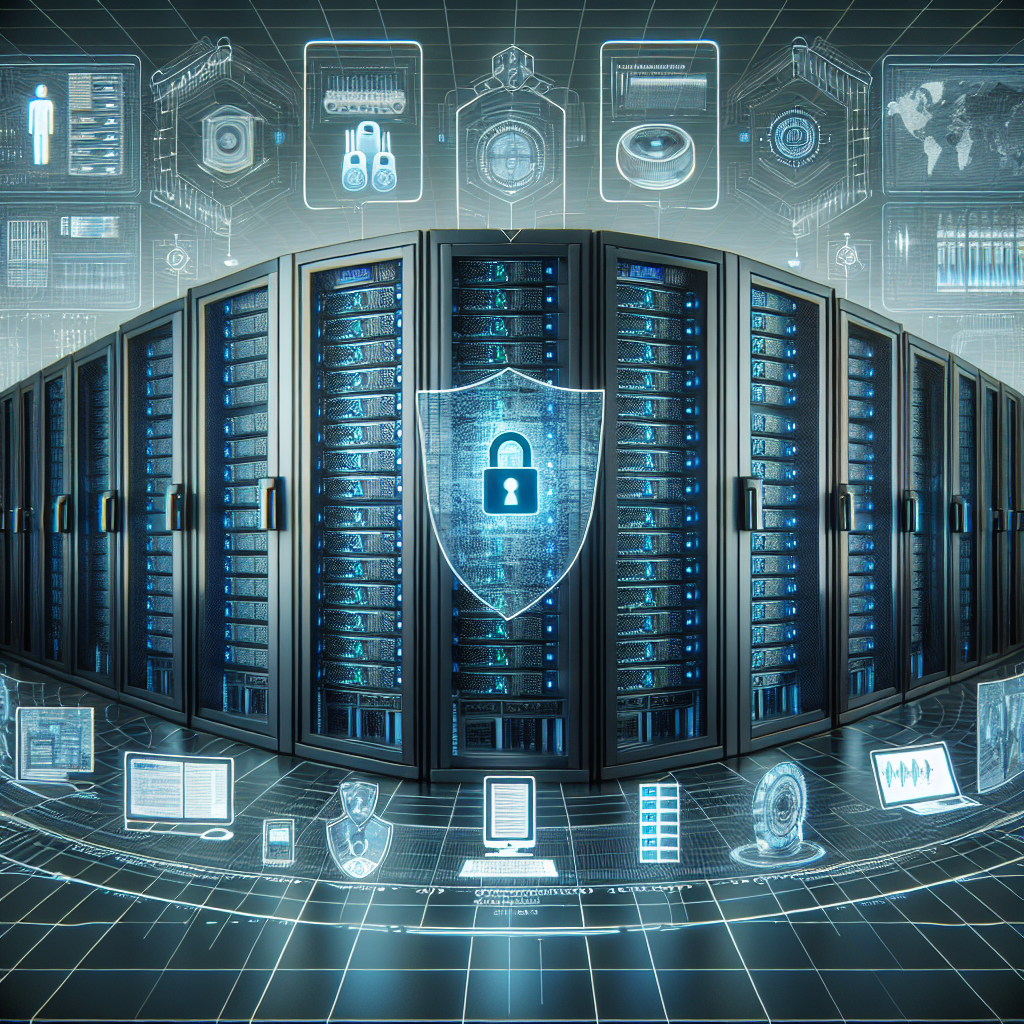
The Importance of Data Center Security Systems in Safeguarding Sensitive Information
Data centers play a crucial role in the storage and processing of vast amounts of sensitive data for organizations of all sizes. With the increasing reliance on technology and the digitalization of data, ensuring the security of these facilities has become more important than ever. Data center security systems are designed to safeguard sensitive information and protect against potential threats such as cyberattacks, data breaches, and physical intrusions.One of the primary reasons why data center security systems are important is to protect the confidentiality, integrity, and availability of data. Sensitive information such as financial records, customer data, intellectual property, and trade secrets must be kept secure to prevent unauthorized access, alteration, or theft. Data breaches can have serious consequences for businesses, including financial losses, reputational damage, and legal liabilities. By implementing robust security measures, organizations can mitigate the risks associated with data breaches and ensure the protection of their valuable assets.
Data center security systems also help to ensure compliance with regulatory requirements and industry standards. Many organizations are subject to strict data protection regulations such as the General Data Protection Regulation (GDPR) and the Health Insurance Portability and Accountability Act (HIPAA). Failure to comply with these regulations can result in severe penalties and sanctions. By implementing comprehensive security measures, organizations can demonstrate their commitment to data protection and compliance with relevant laws and regulations.
In addition to protecting sensitive data, data center security systems also help to safeguard the physical infrastructure of the facility. Data centers house valuable equipment such as servers, networking devices, and storage systems that are critical to the operation of the organization. Physical security measures such as access control, surveillance cameras, and alarm systems help to prevent unauthorized access, theft, and vandalism. By securing the physical environment of the data center, organizations can ensure the uninterrupted operation of their IT infrastructure and minimize the risk of downtime.
Another important aspect of data center security systems is the detection and response to security incidents. Cyberattacks and security breaches can occur at any time, and organizations must be prepared to respond quickly and effectively to mitigate the impact of these incidents. Intrusion detection systems, security monitoring tools, and incident response procedures help to identify and address security threats in a timely manner. By proactively monitoring and responding to security events, organizations can prevent potential data breaches and minimize the damage to their operations and reputation.
In conclusion, data center security systems are essential for safeguarding sensitive information and protecting against potential threats. By implementing robust security measures, organizations can ensure the confidentiality, integrity, and availability of their data, comply with regulatory requirements, safeguard their physical infrastructure, and detect and respond to security incidents effectively. Investing in data center security systems is crucial for organizations that rely on technology and data to drive their business operations and maintain the trust of their customers.
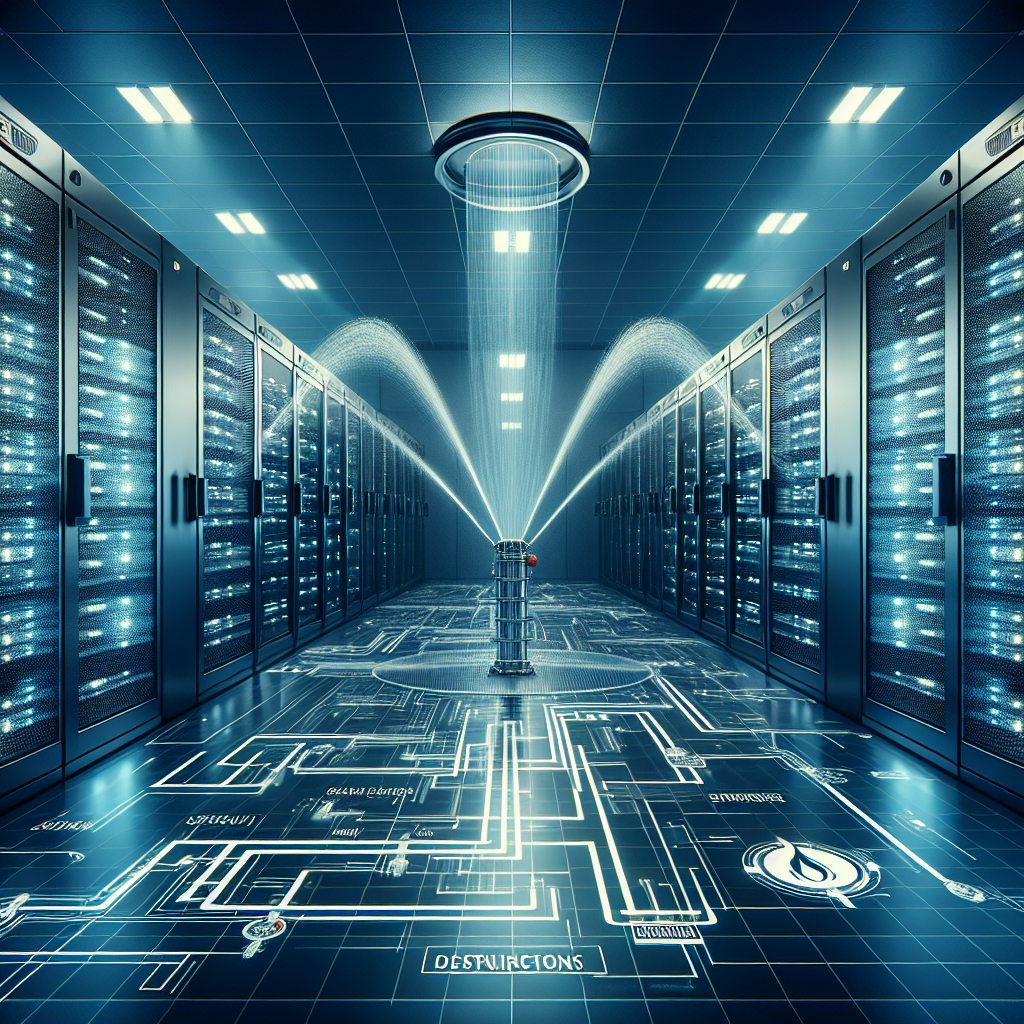
The Importance of Data Center Fire Suppression Systems
Data centers are an essential part of modern businesses, serving as the backbone for storing, processing, and managing critical data. With the increasing reliance on data, ensuring the safety and security of these facilities is of utmost importance. One of the key aspects of data center safety is the implementation of effective fire suppression systems.Data centers house a large number of servers, networking equipment, and other electronic components that generate heat and can be prone to fires. A fire in a data center can not only lead to significant financial losses but also jeopardize the integrity of the data stored within. As such, having a reliable fire suppression system in place is crucial to protect these valuable assets.
There are several types of fire suppression systems that can be used in data centers, including gaseous suppression systems, water-based sprinkler systems, and foam-based systems. Each type has its own advantages and is suited for different types of fires. For example, gaseous suppression systems are ideal for protecting sensitive electronic equipment as they quickly extinguish fires without causing damage to the equipment.
In addition to preventing fires, fire suppression systems also help to minimize downtime and ensure business continuity. In the event of a fire, these systems can quickly suppress the fire and limit the damage, allowing data center operations to resume as soon as possible. This is crucial for businesses that rely on continuous access to their data and cannot afford any disruptions.
Furthermore, having a reliable fire suppression system in place can also help data centers comply with regulatory requirements and industry standards. Many regulatory bodies require data centers to have adequate fire protection measures in place to ensure the safety of employees, visitors, and the environment.
Overall, the importance of data center fire suppression systems cannot be overstated. They play a critical role in protecting valuable data, ensuring business continuity, and complying with regulations. Investing in a robust fire suppression system is essential for any data center looking to safeguard its operations and assets.
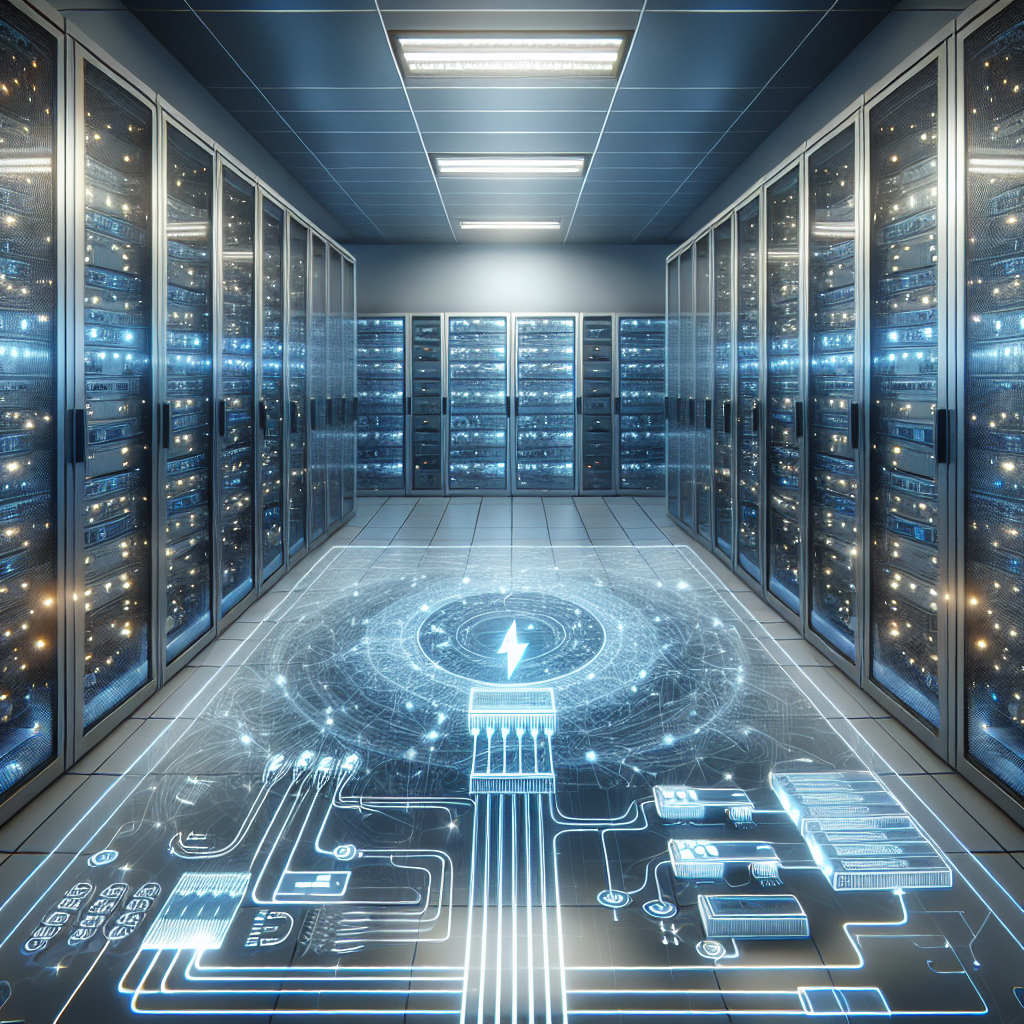
The Importance of Reliable Electrical Systems in Data Centers
Data centers are the backbone of the digital world, housing the servers and infrastructure that power everything from social media platforms to online shopping websites. With the increasing reliance on digital services, the importance of reliable electrical systems in data centers cannot be overstated.One of the primary functions of a data center is to ensure that the servers and equipment housed within are constantly powered and operational. Any interruption in power supply can lead to downtime, which can have serious consequences for businesses and their customers. Downtime can result in lost revenue, decreased productivity, and damage to a company’s reputation.
To prevent downtime, data centers must have reliable electrical systems in place. This includes backup power systems such as uninterruptible power supplies (UPS) and generators to ensure continuous power supply in the event of a grid outage. These systems are crucial for maintaining uptime and ensuring that critical data and services are always accessible.
Furthermore, reliable electrical systems in data centers are essential for ensuring the safety and security of the equipment and the data stored within. Electrical failures can pose fire hazards and cause damage to expensive hardware, resulting in costly repairs and potential data loss. By investing in reliable electrical systems, data center operators can mitigate these risks and protect their assets.
In addition to uptime and safety, reliable electrical systems are also crucial for energy efficiency. Data centers are notorious for their high energy consumption, and inefficient electrical systems can lead to unnecessary waste and increased operating costs. By implementing reliable electrical systems that are designed for optimal performance, data centers can reduce their energy footprint and lower their operational expenses.
Overall, the importance of reliable electrical systems in data centers cannot be understated. From ensuring uptime and data security to improving energy efficiency, reliable electrical systems are essential for the smooth operation of data centers and the services they provide. By investing in high-quality electrical systems and maintenance practices, data center operators can ensure that their facilities remain operational and reliable in the face of any challenges.
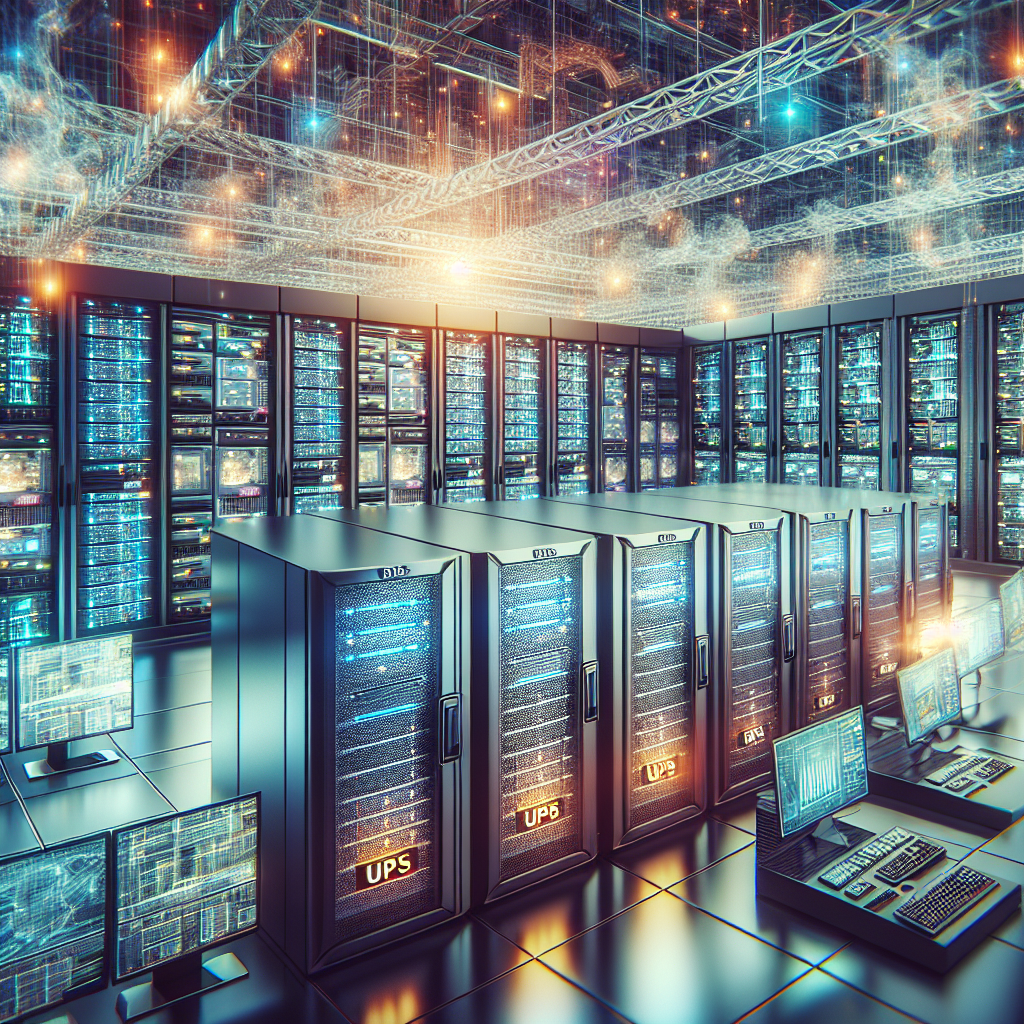
The Importance of Data Center UPS Systems in Ensuring Business Continuity
In today’s digital age, data centers play a crucial role in storing, processing, and managing vast amounts of information for businesses. With the increasing reliance on technology for everyday operations, the importance of data center UPS systems in ensuring business continuity cannot be overstated.UPS, or uninterruptible power supply, systems are critical components of data centers that provide backup power in the event of a power outage or disruption. This is essential for maintaining the availability and reliability of critical IT infrastructure and preventing costly downtime.
One of the main reasons why UPS systems are so important in data centers is their ability to provide seamless power protection and backup during unexpected power failures. Power outages can occur due to a variety of reasons, such as severe weather, equipment failure, or human error. Without a UPS system in place, data centers risk losing power and potentially losing critical data and services.
In addition to protecting against power outages, UPS systems also help regulate power quality and prevent fluctuations in voltage that can damage sensitive IT equipment. By providing a consistent and clean power supply, UPS systems help ensure the longevity and reliability of data center infrastructure.
Furthermore, UPS systems play a crucial role in ensuring business continuity by minimizing downtime and maintaining operations during power disruptions. Downtime can be extremely costly for businesses, leading to lost revenue, decreased productivity, and damage to reputation. By having a reliable UPS system in place, data centers can continue to operate seamlessly and meet the demands of customers and stakeholders.
It’s important for businesses to invest in high-quality UPS systems that are designed to meet the specific needs of their data center infrastructure. This includes considering factors such as capacity, runtime, scalability, and redundancy to ensure optimal performance and protection.
In conclusion, the importance of data center UPS systems in ensuring business continuity cannot be underestimated. By providing backup power, regulating power quality, and minimizing downtime, UPS systems play a critical role in maintaining the availability and reliability of data center operations. Businesses that prioritize the implementation of UPS systems can safeguard their IT infrastructure, protect critical data, and ensure seamless operations in the face of power disruptions.
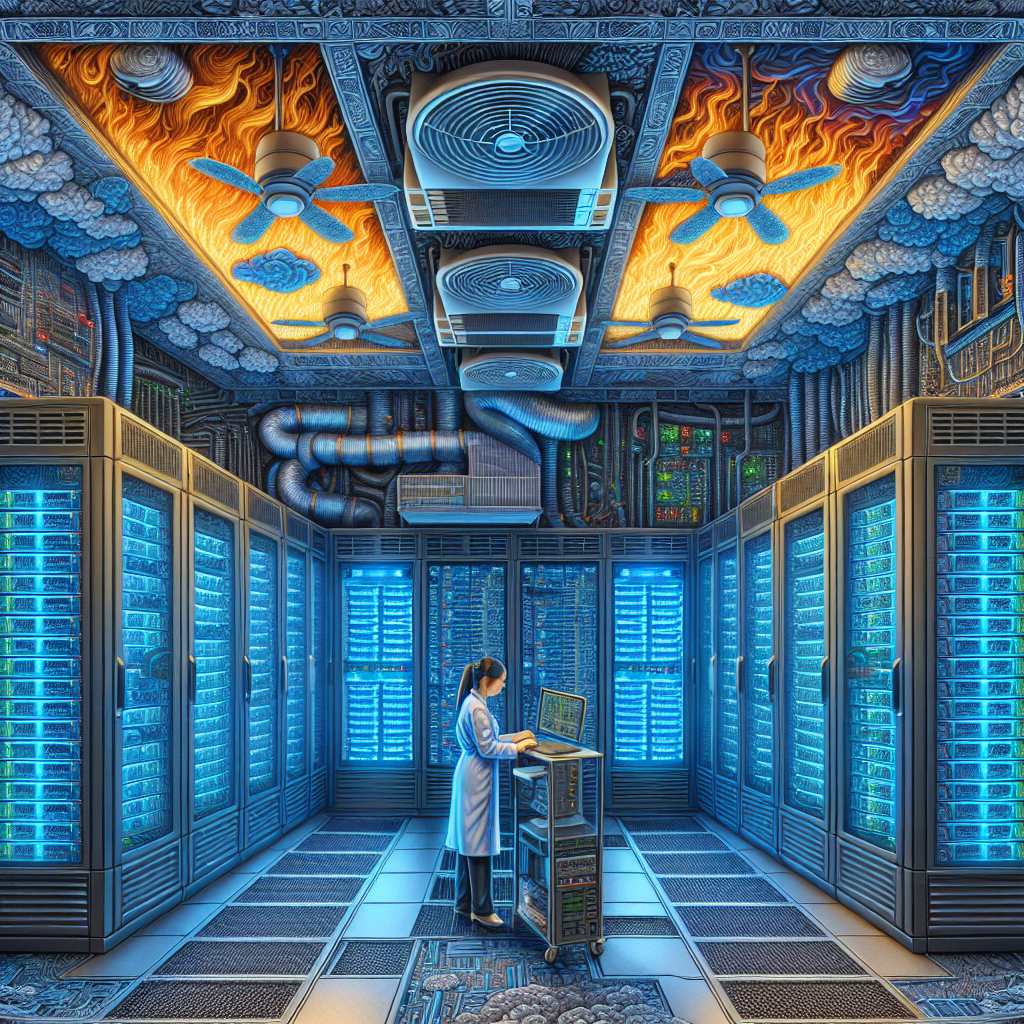
The Importance of Efficient Data Center Cooling Systems
Data centers play a crucial role in the modern digital world, serving as the backbone of our information-driven society. They house the servers, networking equipment, and storage systems that power the internet, cloud computing, and other digital services. As the demand for data processing and storage continues to grow, data centers are becoming increasingly important.One of the key challenges facing data centers is managing the heat generated by the equipment. The servers and other hardware in a data center produce a significant amount of heat, and if not properly cooled, they can overheat and malfunction, leading to downtime and data loss. This is why efficient data center cooling systems are essential to ensuring the reliability and performance of these critical facilities.
Efficient data center cooling systems help to maintain the temperature within the data center at optimal levels, ensuring that the equipment operates at peak efficiency. This not only prolongs the lifespan of the hardware but also reduces energy consumption and operating costs. Inefficient cooling systems can lead to wasted energy and increased cooling expenses, which can have a significant impact on the overall operating costs of a data center.
There are several different types of cooling systems that can be used in data centers, including air-based systems, liquid-based systems, and hybrid systems that combine both air and liquid cooling. Each type of cooling system has its own advantages and disadvantages, and the choice of system will depend on factors such as the size of the data center, the amount of heat generated by the equipment, and the budget constraints of the organization.
In recent years, there has been a growing trend towards more energy-efficient cooling systems in data centers. This is driven by a combination of factors, including rising energy costs, increasing environmental concerns, and the need to reduce carbon emissions. Energy-efficient cooling systems not only help to reduce operating costs but also have a positive impact on the environment, making them a win-win solution for data center operators.
In conclusion, efficient data center cooling systems are essential for the reliable and cost-effective operation of data centers. By investing in energy-efficient cooling systems, data center operators can reduce operating costs, prolong the lifespan of their equipment, and minimize their environmental impact. As the demand for data processing and storage continues to grow, the importance of efficient cooling systems in data centers will only increase.
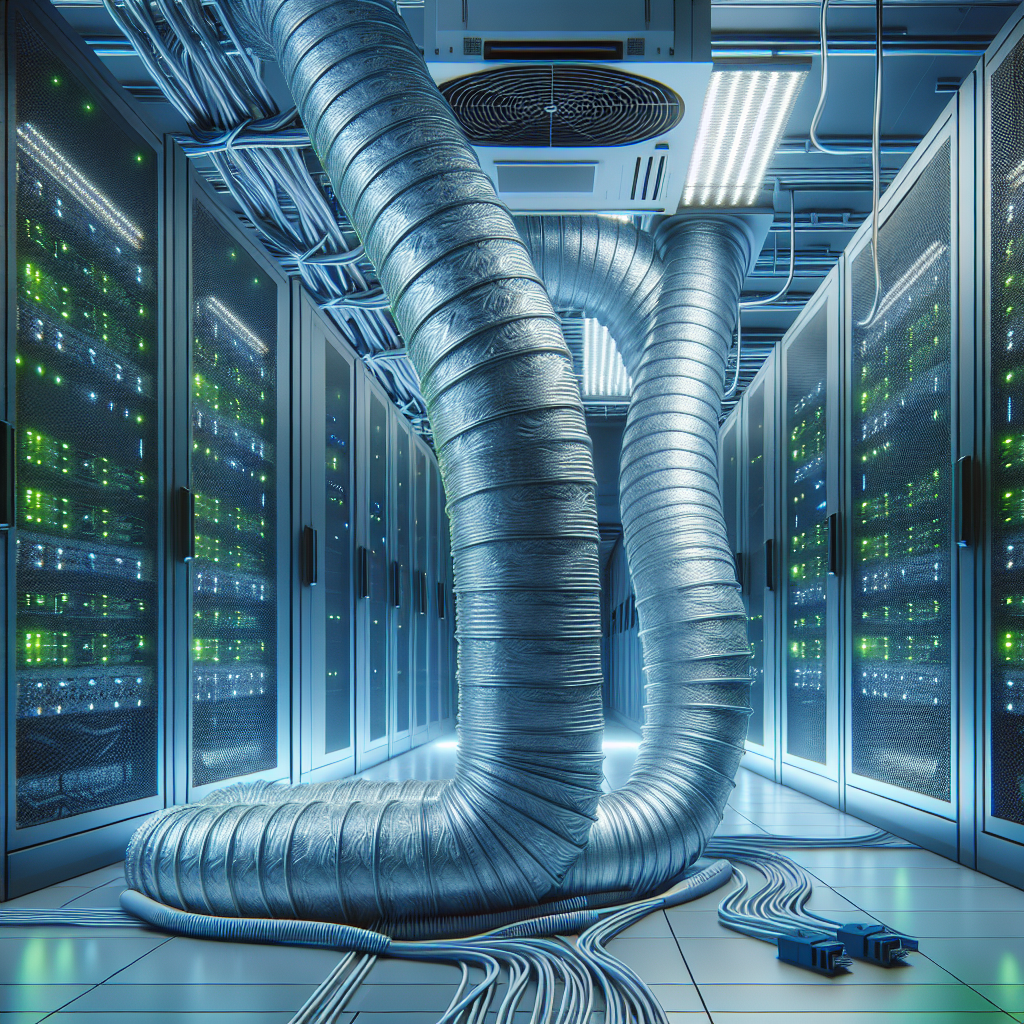
The Importance of Proper HVAC Systems in Data Centers
Data centers are an essential component of the modern digital world, serving as the backbone for storing, processing, and transmitting vast amounts of information. With the increasing reliance on technology and data-driven decision-making, the importance of maintaining proper HVAC systems in data centers cannot be overstated.HVAC, which stands for heating, ventilation, and air conditioning, plays a critical role in ensuring the optimal performance and longevity of data center equipment. These systems are responsible for regulating temperature, humidity, and air quality, all of which are essential for keeping servers, networking devices, and other critical infrastructure running smoothly.
One of the primary reasons why proper HVAC systems are crucial in data centers is temperature control. Data centers generate a significant amount of heat due to the constant operation of servers and other equipment. If the temperature in a data center rises beyond a certain threshold, it can lead to overheating, equipment failure, and potential data loss. By maintaining a consistent and controlled temperature, HVAC systems help prevent these issues and ensure the reliable operation of data center equipment.
In addition to temperature control, humidity levels also play a key role in the performance of data center equipment. High humidity can lead to condensation, which can cause electrical shorts and corrosion, while low humidity can result in static electricity buildup, which can damage sensitive components. Proper HVAC systems help regulate humidity levels within the optimal range, protecting equipment from these potential risks.
Furthermore, air quality is another important factor that HVAC systems address in data centers. Dust, debris, and other contaminants can accumulate in data center equipment, leading to reduced performance and potential damage. By filtering and circulating clean air, HVAC systems help maintain a clean and healthy environment for data center equipment to operate in.
Overall, proper HVAC systems are essential for ensuring the reliability, efficiency, and longevity of data center equipment. Investing in high-quality HVAC systems and regular maintenance can help prevent costly downtime, equipment failures, and data loss, ultimately supporting the seamless operation of data centers and the critical services they provide to businesses and individuals alike.
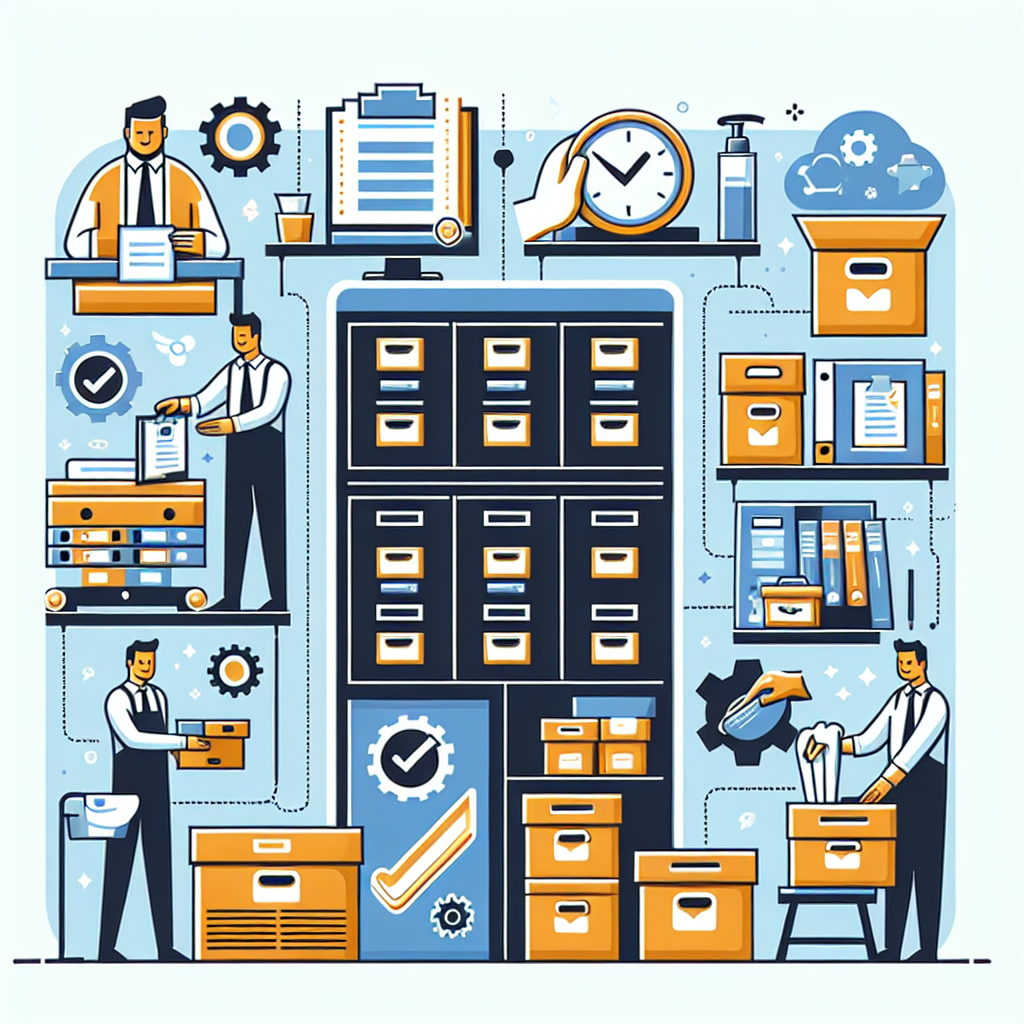
Tips for Properly Maintaining Your Storage Systems
Storage systems are essential for keeping your belongings organized and easily accessible. Whether you have a closet, garage, or a dedicated storage unit, proper maintenance is key to ensuring that your items remain in good condition and that you can easily find what you need when you need it. Here are some tips for properly maintaining your storage systems:1. Regularly declutter: One of the most important steps in maintaining your storage systems is to regularly declutter and get rid of items that you no longer need or use. This will not only free up space but also make it easier to find and access the items that you do need. Set aside time at least once a year to go through your storage space and donate, sell, or discard any items that are no longer useful to you.
2. Use appropriate storage containers: Invest in high-quality storage containers that are durable and can protect your items from dust, moisture, and pests. Use clear containers or label them clearly so that you can easily see what is inside without having to open each one. Consider using bins, baskets, or shelves to keep smaller items organized and easily accessible.
3. Keep items off the floor: To prevent damage from moisture or pests, avoid storing items directly on the floor. Use shelves, hooks, or hanging organizers to keep items off the ground and make it easier to access them. If you are storing items in a garage or basement, consider using pallets or plastic bins to elevate them and protect them from water damage.
4. Maintain a system for organization: Develop a system for organizing your items based on categories, frequency of use, or seasonality. Keep similar items together and label shelves or containers accordingly. Consider using color-coded labels or tags to easily identify different categories of items. Regularly review and update your organization system to ensure that it continues to meet your needs.
5. Monitor humidity levels: If you are storing items in a basement or garage, monitor humidity levels to prevent moisture damage. Consider using dehumidifiers or moisture-absorbing products to keep the air dry and protect your items from mold or mildew. Store sensitive items such as clothing, documents, or electronics in a climate-controlled storage unit if necessary.
By following these tips for properly maintaining your storage systems, you can ensure that your belongings remain organized, easily accessible, and in good condition. Regular maintenance and organization will save you time and frustration in the long run and help you make the most of your storage space.
